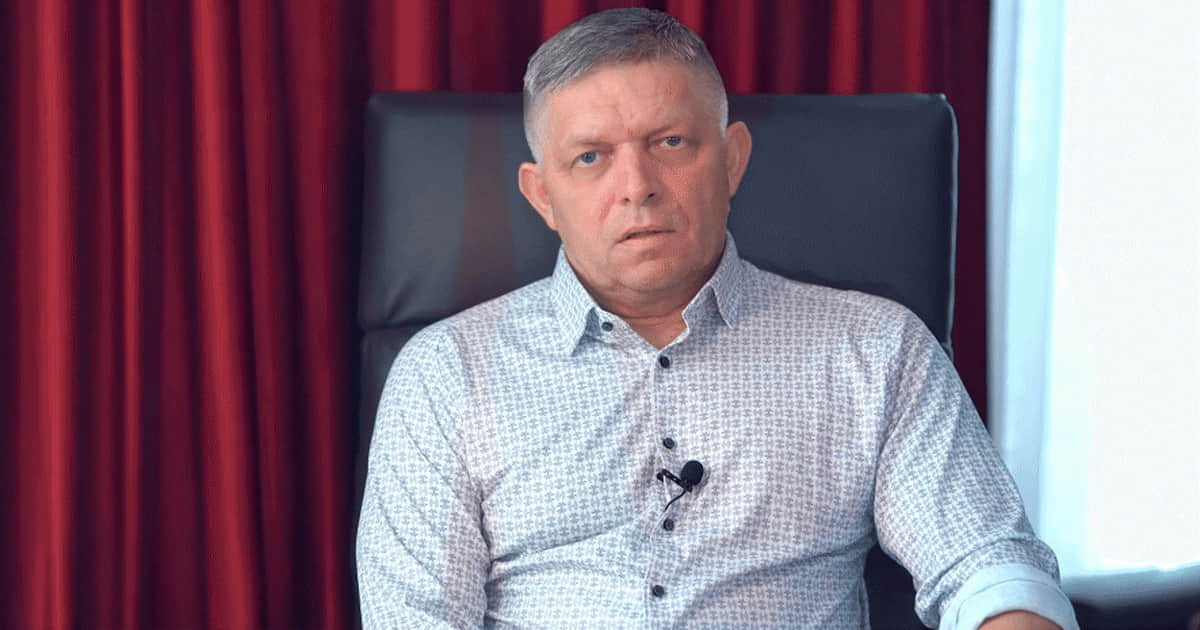How assassination attempt on Fico changed Slovakia and its impact on Ukraine

Slovak Prime Minister Robert Fico has posted a video for the first time since the assassination attempt on 15 May. After thanking the doctors and announcing that he plans to return to his duties in a few weeks, Fico also shared his perspective on the assassination attempt. Read more to understand how this incident will affect the country's politics, its relations with the European Union and very likely with Ukraine in the article by Yurii Panchenko, a European Pravda editor - Fico chooses war: How Slovak Prime Minister plans to use the assassination attempt.
"I forgive and warn" is the title of Robert Fico's video address, released on 5 June. The first part - forgiveness - goes to the attacker, 71-year-old Juraj Cintula. On 15 May, in the town of Handlova, where the Slovak government was holding an off-site meeting, he shot the prime minister several times, hitting him in the abdomen and arm.
Advertisement: Next, in his address, the Slovak prime minister lashed out at the opposition. "Obviously, he (Juraj Cintula - Ed.) was just a messenger of evil unleashed by a politically unsuccessful and frustrated opposition to uncontrollable proportions," Fico claims.
According to him, the attack was directly orchestrated by the Slovak opposition, independent media and non-governmental organisations "funded from abroad." "I want to ask the anti-government media, especially that are co-owned by the financial structure of George Soros, not to go down this road," Fico asserts, adding that "I have no reason to believe this was an attack by a lone madman." Immediately after the attempt on Fico's life, Slovak politicians voiced two opposing messages.
Some directly accused the opposition of organising the attack. The opposite message was voiced by President Zuzana Caputova, who called for reconciliation between political opponents. Importantly, this statement was echoed by the president-elect, Peter Pellegrini.
To reduce the level of tension and hatred in society, both the current and newly elected presidents proposed holding a round table for all Slovak political forces. Now, after Fico's address, all questions have been answered. The Slovak prime minister chooses not de-escalation, but war. War with the opposition, independent media,and the civil sector.
"For 14 minutes, the prime minister blamed the media, opposition, artists, the EU and our foreign partners. Instead of actively promoting societal reconciliation, he called the killer 'an activist of the political opposition' and repeated the global Soros conspiracy against Slovakia," commented Michal Simecka, leader of Progressive Slovakia, on the prime minister's statement. The opposition predicts that the attack on the prime minister will be used by him to settle scores and Fico's current statement is seen as a sort of "declaration of war."
As for the further confrontation, such a strategy threatens not only the repetition of incidents like the assassination attempt but also a conflict with the European Commission, which could lead to restrictions on funding for Slovakia. "Fico is a pragmatist. He understands that without European money, he won't win the next election.
Therefore, he will look for a balance on how to tighten the screws without falling under Brussels' punishment," suggests Alexander Duleba, an expert with the Slovak Foreign Policy Association. Currently, relations between Kyiv and Bratislava are teetering on the brink of conflict. Fico has made a series of anti-Ukrainian statements but has not blocked important decisions for Ukraine.
However, a potential conflict with the European Commission could destroy this very fragile compromise.
Then it will become clear that Fico has declared war not only on the Slovak media, opposition and NGOs but also on Ukraine.
If you notice an error, select the required text and press Ctrl + Enter to report it to the editors.